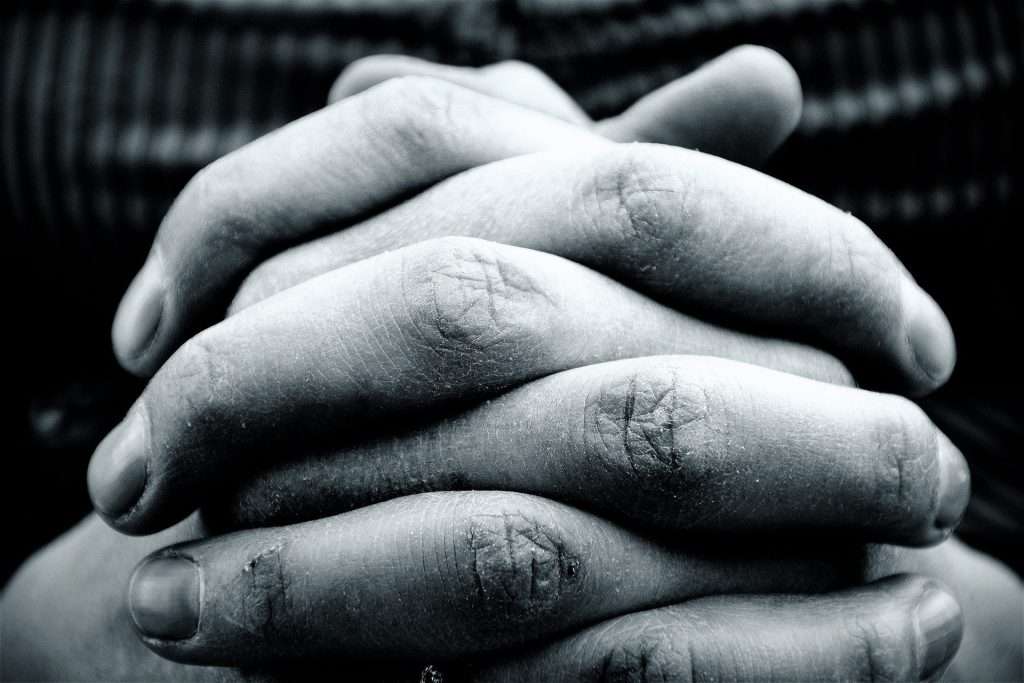 Jabez was more honorable than his brothers; and his mother called his name Jabez, saying, “Because I bore him in pain.” Jabez called upon the God of Israel, saying, “Oh that you would bless me and enlarge my border, and that your hand might be with me, and that you would keep me from harm so that it might not bring me pain!” And God granted what he asked. (1 Chronicles 4:9-10)
Jabez was more honorable than his brothers; and his mother called his name Jabez, saying, “Because I bore him in pain.” Jabez called upon the God of Israel, saying, “Oh that you would bless me and enlarge my border, and that your hand might be with me, and that you would keep me from harm so that it might not bring me pain!” And God granted what he asked. (1 Chronicles 4:9-10)
Many of us have prayers that we long for God to answer, whether it is for finances, health, a new home or a good job. That’s because He is a God of awe-inspiring grace, goodness, mercy and kindness and he hears and answers our cries. In this, the first of my mini-commentaries I hope to encourage you to trust the Lord and to keep looking to him in confidence, hope and obedience.
THE JABEZ PRAYER
1 Chronicles 4:9-10
Introducing Jabez
In 1 Chronicles 4:9-10 we read about a seemingly obscure man named Jabez; the prayer he prayed was significant in that, in the midst of a long list of genealogy names the writer pauses to mention the man, the prayer; and how it was answered. There is much to learn from Jabez’s prayer, but not just his prayer – it includes his name and his circumstances, and your heart is pulled into his story.
Occasionally God is silent, but we can be reassured that He is still working for our good
While the story offers hope, especially when it comes to prayer, it does not guarantee that prayers will be answered, especially the way we desire. It has been said about prayer that God will either say “yes,” “no,” or “wait.” But I think we should also take into account that occasionally God is silent, but we can be reassured that He is still working for our good. (Rom 8:23) We must never let go of the reality of genuine difficulties in life, and the necessity of sincere prayer to face those difficulties in a God-honoring way – this narrative does give us much hope to be relentless in our pursuit of God following the admonition of what Jesus was showing us in Luke in 18 “that men should always pray and never give up.”
As we approach the story, the text assumes that we know who Jabez is, but other than in 1 Chron 2:55 we don’t much more other than he was more honorable than his brothers, and that his mother gave birth to him in grief- we don’t even know his father’s name – Jabez is mentioned suddenly in the middle of the text, and curiously, his name, chosen unusually by his mother rather than his father has symbolic significance.
As we read the story, we should pause to notice the deliberate disclosure that his birth was accompanied by his mother’s prevailing pain. This is the story of life, as we also know it – promise accompanied by pain and difficulty.
Born in pain
While his name was not necessarily something that defined him (Jabez: “Born in pain”), it did reflect that his mother bore him in pain, and we can assume, that she treasured him as he grew and we are not told how, but Jabez grew to be more honorable than his unnamed brothers [mfn]It is of some interest to point out that the Hebrew consonants in his name play against each other to create a strong implication of pain (the name comes from the root ‘abats’; the noun ‘atsab’ refers to the pain of childbirth) it is almost as if Jabez is misspelled; but the meaning is clear.[/mfn].
Jabez was found to be more honourable than his brothers.
The names we are known by do not define us, nor even our reputations or titles (if we have any) unless we allow them – however, there is something we possess that does define us, and that is the fact that we were born again in the midst of pain. That pain is expressed at the Cross. The Cross of Christ fully reflects God’s love for us and demonstrates the drastic and essential cost involved in reconciling us to God. That’s not the point of this text, but it’s an excellent example of how we can see God’s love expressed throughout Scripture.
Developing the theme further, the text before us does not give us any indication as to why Jabez was found to be more honourable than his brothers. He was one of the wise men who arranged public assemblies to discuss problems of law, “The clans also of the scribes who lived at Jabez: the Tirathites, the Shimeathites and the Sucathites. These are the Kenites who came from Hammath, the father of the house of Rechab.” (I Chron. 2:55).
A godly man
 What set him apart from them? According to some, it was because Jabez prayed, but this inference is hard to draw from the text. Scripture can be very blunt and to the point, look at the reference to Judas, “He said this, not because he cared about the poor, but because he was a thief, and having charge of the money bag he used to help himself to what was put into it.” (John 12:6)
What set him apart from them? According to some, it was because Jabez prayed, but this inference is hard to draw from the text. Scripture can be very blunt and to the point, look at the reference to Judas, “He said this, not because he cared about the poor, but because he was a thief, and having charge of the money bag he used to help himself to what was put into it.” (John 12:6)
If Jabez’ brothers had not been praying, scripture would have revealed this, but we cannot guess; we must just be content with not knowing.
I think the picture more likely being conveyed is a collective one; Jabez was a godly man, treasured and nurtured in the things of God and that though thirty-six generations passed by between Adam and Jabez, the word honor is employed only in reference to Jabez. Life’s difficulties leave a mark on you, primarily because when you trust in the Lord in the dark times and cleave to him, there is a work of the Spirit that sets you apart – an experience like Jacob’s where you struggle with God and you are transformed.
Jabez called upon the God of Israel
There is a possibility that Jabez was a scribe and if he were so, he worshiped carefully. It seems as if something important is being emphasized here; rather than calling on any god, it is stressed that he called with complete dependence on the God of Israel (the first time the term God of Israel is used in Chronicles.) Indomitable, invincible, omnipotent – this is Elohim, the champion of Israel.
Even here, this may be more than prayer – this is a heartfelt utterance. Samuel’s mother Hannah knew something of this even though her utterance was a whisper – the heart was fully engaged.
Indomitable, invincible, omnipotent – this is Elohim, the champion of Israel.
It is not stated when this happened, nor are there any landmarks in the text to indicate how old he was, nor what the difficulty he faced;we are left to wonder and perhaps to reflect on our own situation. There are certain things in life that require divine intervention, assistance from above or nothing short of a miracle – and this text looks at you invitingly.
Here we can reflect that it was the God of Israel who answered the prayers of his creation by fire, wind, earthquake, and by a still small voice; this is who Jabez prayed to. Would he answer? One sure way to not have a prayer answered is not to pray – but Jabez prayed. To Jabez, God is both infinite and intimate, both accessible and able to answer all of his questions (Ps103:19). Moreover, He is the God “of Israel,” especially related to His chosen ones (Amos 3:2).
It’s not every day that we know what a person prayed, and this is a case where we are told what they prayed, so that something even more profound can be revealed:
“Oh that you would bless me”
Jabez acknowledges that the God of Israel is the source of all blessings and asks that God bless him. He may have been influenced by the promise God made to Abraham and his descendants (Genesis 22:17). Proverbs 10:22 speaks of God’s blessing urging us that “the blessing of the Lord makes one rich, And He adds no sorrow with it. It is complete. The blessing of God brings a sense of wholeness, peace and comfort – nothing compares with it.
“Enlarge my border,”
 I wonder about the interpretation here. Many people think Jabez is asking for more land, property or “stuff” in this passage, but I don’t think he is. Consider Solomon who was told by God to ask for what he would give him. When Solomon asked for wisdom, God replied, “Because you have not asked for riches for yourself… I give you what you have not asked for, both riches and honour as well.” In the Church today, we know that God is not just our saviour and protector, but also our provider, a truth that is reflected in Israel’s relationship to God as Jehovah Jireh – Jabez will be well aware of that.
I wonder about the interpretation here. Many people think Jabez is asking for more land, property or “stuff” in this passage, but I don’t think he is. Consider Solomon who was told by God to ask for what he would give him. When Solomon asked for wisdom, God replied, “Because you have not asked for riches for yourself… I give you what you have not asked for, both riches and honour as well.” In the Church today, we know that God is not just our saviour and protector, but also our provider, a truth that is reflected in Israel’s relationship to God as Jehovah Jireh – Jabez will be well aware of that.
Jabez is a man after God’s own heart and this entire prayer can only be understood as one common plea – he wants more of God
So what is Jabez asking for? Jews prayed aloud, and we are not told here who it is that is recounting Jabez’s prayer. If this was prayed in public, I do not think it was a prayer asking for someone else’s border to be diminished so that his could be increased. The borders were legally defined. I think the answer is found in the life of Jesus where we are told “And Jesus increased in wisdom and stature, and in favour with God and man” (Luke 2:52)
I may be wrong, but I believe Jabez is a man after God’s own heart and this entire prayer can only be understood as one common plea – he wants more of God and needs favor, influence, wisdom and the resources to be a blessing to all of God’s people.
“That your hand might be with me”
This is quite different from the charismatic admonition to “seek his face, not his hand” – we should do both, asking for God’s guidance and His strength to be evident in our everyday lives. In Jabez’s personal experience, life can be incredibly difficult and painful without God’s daily intervention. He is aware of the nearness of God’s presence, the enabling encouragement, and the powerful peace that comes is profoundly understood in the word, “Shalom.” This is beginning to look like a paraphrase of the Lord’s Prayer.
“That you would keep me from harm so that it might not bring me pain!”
The Bible does not tell us what harm Jabez fears or is anxious about, but we do know there is concern about the pain it will bring; and thus we have Jabez, born in pain in apprehension about pain. We all withdraw our hands in the face of sudden pain, conflict, or tension – something Jesus addressed when He taught His disciples to pray: “Father in heaven, deliver us from the evil one” (Matthew 6:9, 13).
“And God granted what he asked.”
The last thing we read about Jabez is that he prayed, but that God heard his prayer and granted it to him. That is a result!
Jabez’ brothers and their fates are not mentioned, nor are their families or how they appear in the history of Israel; Jabez is the only one mentioned. This is so much different from Elijah and Jonah who made requests to die, whose requests were outright denied by God.
What then of this narrative?
It shows that no matter how much pain there may be in life, with God there is always an encouragement from God to reach out to him and make our requests known, particularly for those asking for more of his blessings, closeness and assistance.
 We might not always get the answer we want from God, and Jabez left his request open enough for God to choose what to do. If you don’t ask, you won’t get anything – so it’s worth asking – God is very generous. This prayer is written and tucked away in the book of Chronicles as an example to us – a once obscure man named Jabez looking in now would find his name in print in the most published and read book in global history. The story reveals to us that there is no fomula to prayer other than praying is praying! God chose to glorify his own name by answering the prayer of Jabez. It wasn’t what he intended, but one day Jabez called out to God, and someone was listening, but so was God …
We might not always get the answer we want from God, and Jabez left his request open enough for God to choose what to do. If you don’t ask, you won’t get anything – so it’s worth asking – God is very generous. This prayer is written and tucked away in the book of Chronicles as an example to us – a once obscure man named Jabez looking in now would find his name in print in the most published and read book in global history. The story reveals to us that there is no fomula to prayer other than praying is praying! God chose to glorify his own name by answering the prayer of Jabez. It wasn’t what he intended, but one day Jabez called out to God, and someone was listening, but so was God …
The possibilities are endless with God, and the moment you seek him, you should hold that truth close to your heart (“all things are possible with God”), and who knows, it may be said of you that God heard and granted your request.



